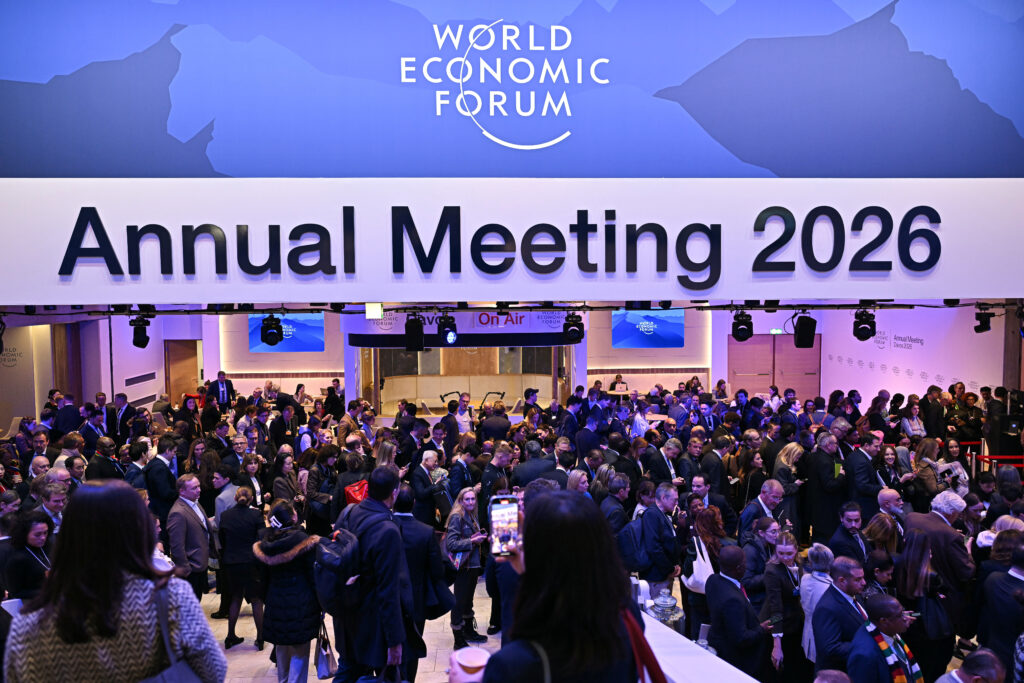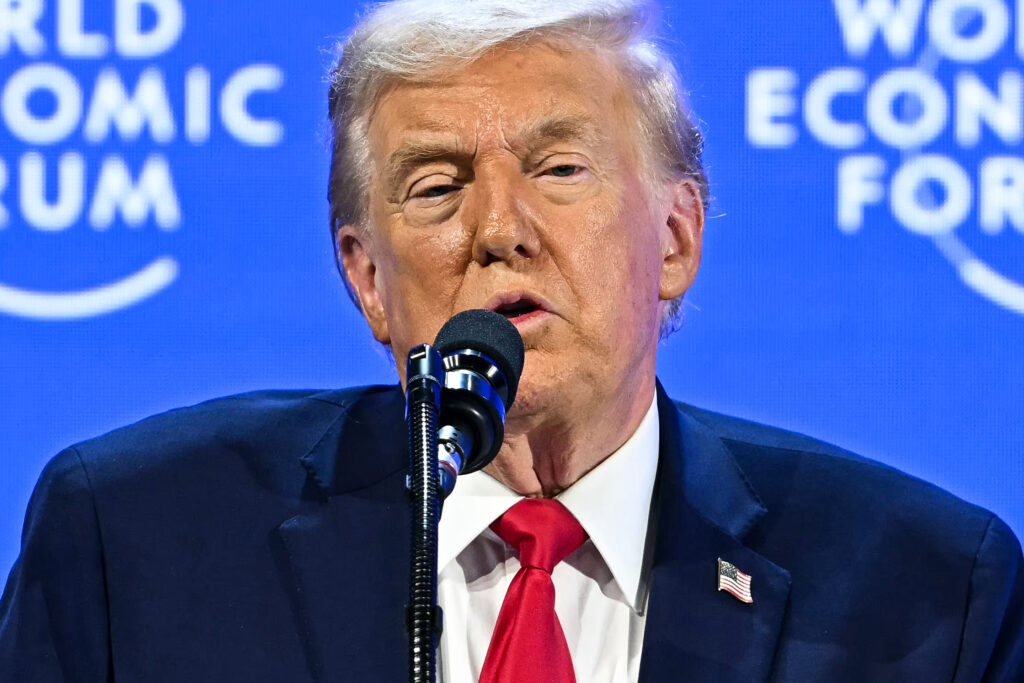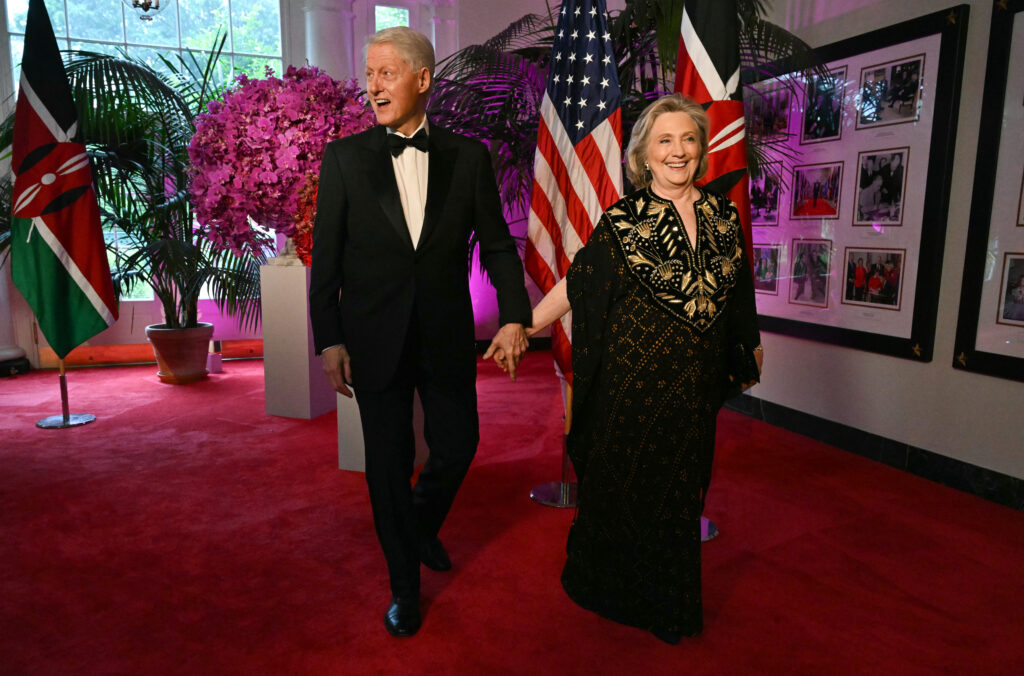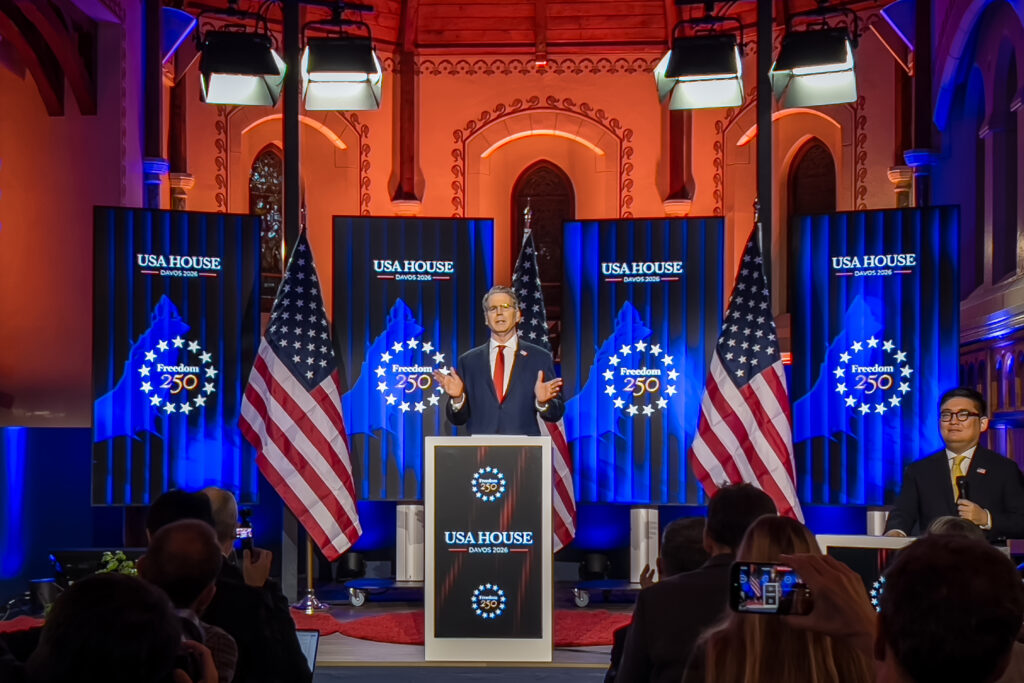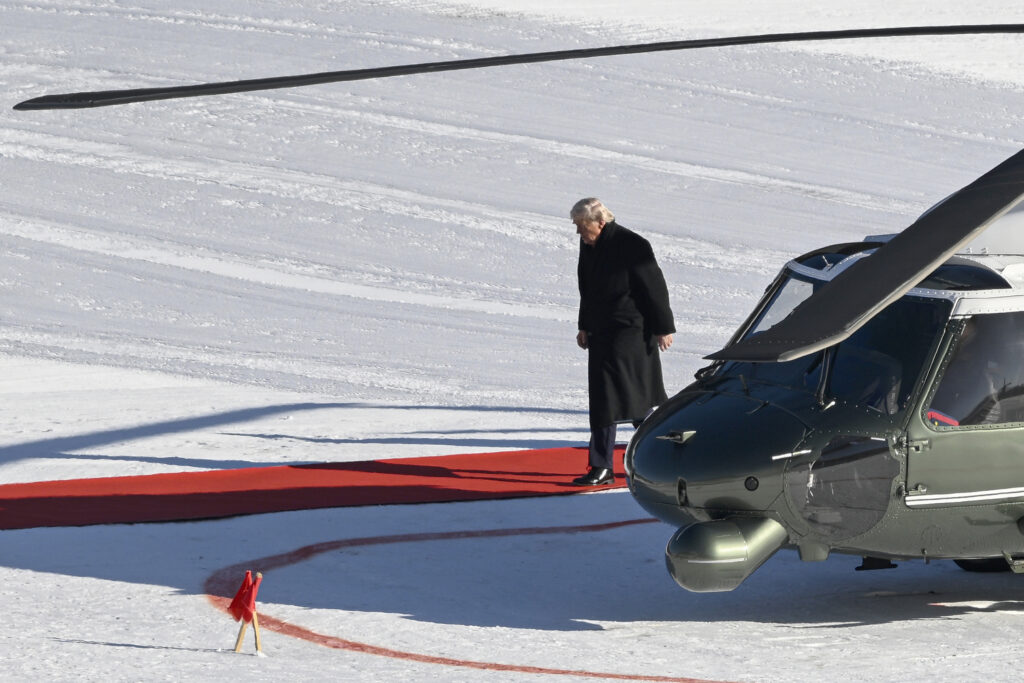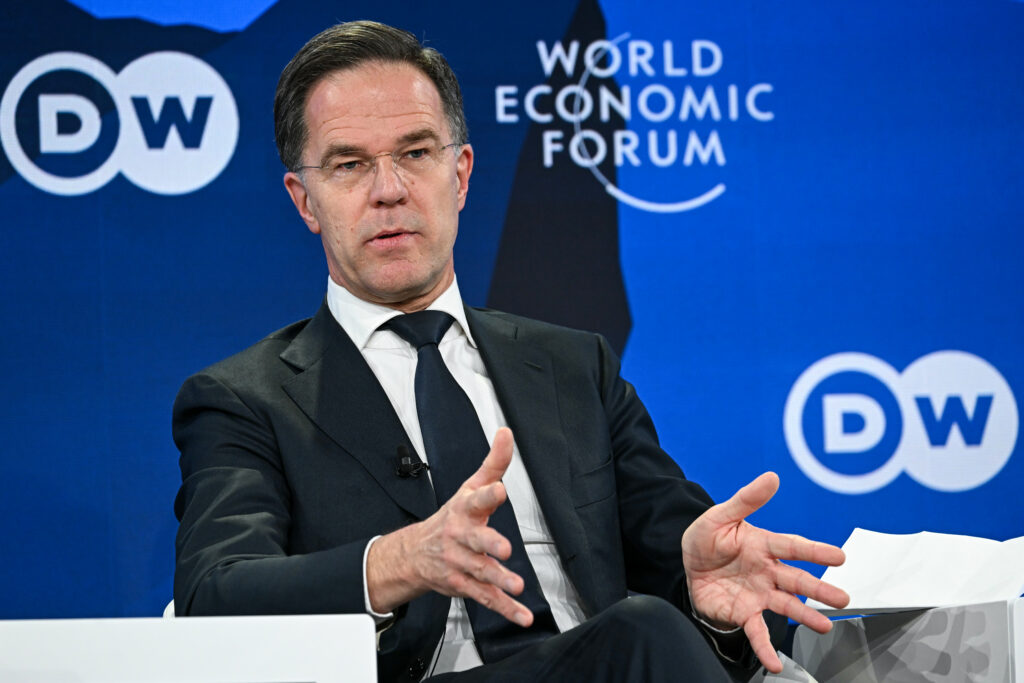Huge lines, laughs and gasps as Trump lectures Davos elite
To muted applause and not a few stony faces, US President Donald Trump took the stage before hundreds of the world’s rich and powerful Wednesday for the most anticipated speech of this year’s Davos forum.But during the two-hour wait to get in, the excitement to hear the leader of the world’s most powerful nation in person was palpable — “It’s like a rock festival,” one attendee said. Quickly the doors to the World Economic Forum’s packed congress hall closed, forcing hundreds to scramble for spots in overflow rooms to watch him on screens.Even the president of Latvia, Edgars Rinkevics, was stuck in line at one point before an aide guided him elsewhere.”It’s interesting that people were lining up to hear President Trump, like they were not lining to hear any other speaker — none has got such kind of interest,” Rinkevics told AFP afterwards.Many were apprehensive about the escalating tensions between Trump and Europe over his bid to seize Greenland, a crisis that has overshadowed the annual schmoozefest’s agenda.”I expect the worst. From what we know from Trump, he always needs to have all the attention and he needs to have a shocker message,” Julia Binder, of the Swiss-based IMD Business School, told AFP.And shock he did.- ‘Neo-imperial’ -In one overflow room, attendees mockingly laughed and gasped throughout his speech.Guffaws when Trump talked about wind farms killing birds. Nervous laughs when he said he was asking for “a piece of ice”, meaning Greenland. Stunned and turning to each other for confirmation when Trump abruptly started referring to Greenland as “Iceland”.Others said “oh no” when he alleged that “Canada lives because of the United States” after accusing its Prime Minister Mark Carney of being ungrateful in his own widely praised speech on Tuesday. Unbelieving laughs broke out when he made fun of French President Emmanuel Macron for wearing sunglasses — due to a burst blood vessel — during his own speech on Tuesday.And howls when he again insisted: “All the US is asking for is a place called Greenland.””I would say he’s gone from neocon to neo-imperial,” one attendee whispered.An hour into Trump’s rambling speech, people started to leave the overflow rooms. “He’s a nutcase,” one said on the way out. – ‘Piece of rock’ -Many said Trump was the ideal guest at a forum for hearing provocative voices.”Davos is a platform for and exchange of ideas, of views. So we are here to listen to all views, whether we like them or not,” said Daniel Marokane, chief executive of a South African power company.But others took umbrage at his trademark abrasiveness and attacks, including an insistence that the US deserves Greenland as payback for its massive NATO financing.”We’re in the business of democracy, we’re not in the business of merger and acquisitions,” Sweden’s Energy Minister Ebba Busch said afterwards. “We will not be blackmailed”.”Trump got elected because he knows how to read a room, but I’m not sure he read the room this time,” said an American medical technology executive, who like others requested anonymity to protect his company’s identity.”One guy I saw get up and leave, he was visibly shaking with anger.”For Polish President Karol Nawrocki, it was a “very important speech”, not least because Trump claimed he would not use force to acquire Greenland.”We’re looking for the diplomatic solution of this, and I’m sure that it will be solved,” he told AFP.Vocal Trump critic Gavin Newsom, governor of California, called Trump’s speech “jaw dropping” for an international audience, saying he had harmed US-European ties despite backing off his implicit threat of using force to seize Greenland. “The damage is extraordinary. And that’s what made this speech so pathetic. What was the point of all this?” he said.For Philippe Aghion, co-winner of the 2025 Nobel prize in economics, “His speech confirms my feeling that Europe needs to rise up, wake up”.”You have to negotiate from a position of strength, and it’s important for Europe to make itself respected,” he told AFP.
